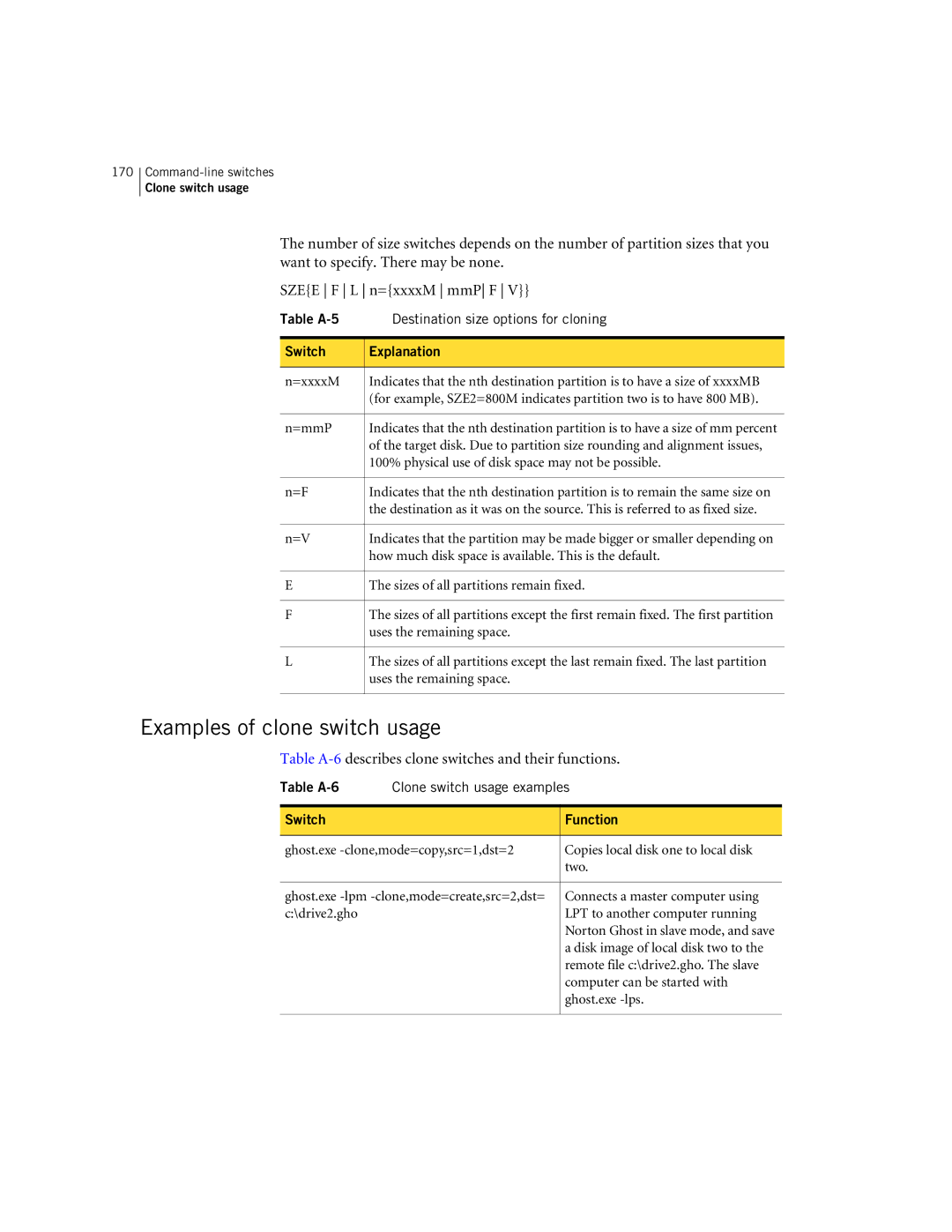
170
Clone switch usage
The number of size switches depends on the number of partition sizes that you want to specify. There may be none.
SZE{E F L n={xxxxM mmP F V}}
Table | Destination size options for cloning |
|
|
Switch | Explanation |
|
|
n=xxxxM | Indicates that the nth destination partition is to have a size of xxxxMB |
| (for example, SZE2=800M indicates partition two is to have 800 MB). |
|
|
n=mmP | Indicates that the nth destination partition is to have a size of mm percent |
| of the target disk. Due to partition size rounding and alignment issues, |
| 100% physical use of disk space may not be possible. |
|
|
n=F | Indicates that the nth destination partition is to remain the same size on |
| the destination as it was on the source. This is referred to as fixed size. |
|
|
n=V | Indicates that the partition may be made bigger or smaller depending on |
| how much disk space is available. This is the default. |
EThe sizes of all partitions remain fixed.
FThe sizes of all partitions except the first remain fixed. The first partition uses the remaining space.
LThe sizes of all partitions except the last remain fixed. The last partition uses the remaining space.
Examples of clone switch usage
Table A-6 describes clone switches and their functions.
Table
Switch | Function |
|
|
ghost.exe | Copies local disk one to local disk |
| two. |
|
|
ghost.exe | Connects a master computer using |
c:\drive2.gho | LPT to another computer running |
| Norton Ghost in slave mode, and save |
| a disk image of local disk two to the |
| remote file c:\drive2.gho. The slave |
| computer can be started with |
| ghost.exe |
|
|
